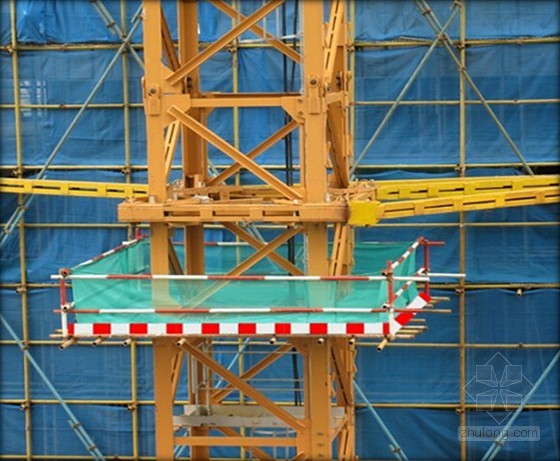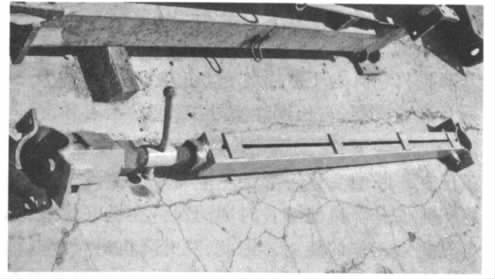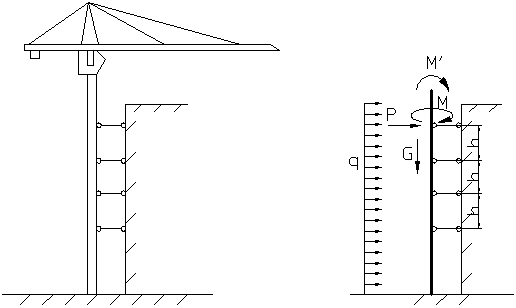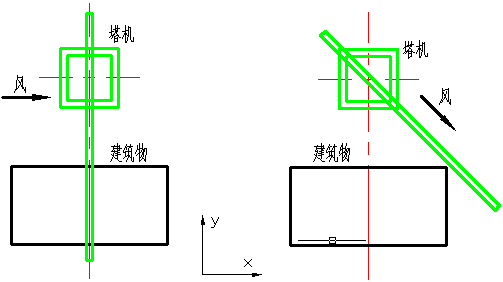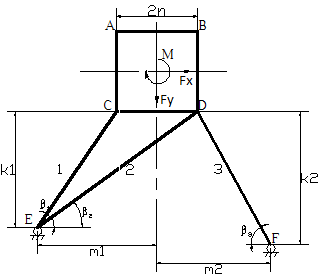塔式起重机附着装置设计毕业论文
2020-05-26 20:25:14
摘 要
塔式起重机是一种工程建筑中应用比较广泛的机械设备。随着我国经济社会的快速发展,对摩天大厦的高度要求提出了更大的挑战,这就要求塔机的工作高度要求更加严格。对于近百米高的塔机,其附着装置的有效性和安全性必须得到保证。
本文以附着塔式起重机为研究对象,详细地介绍了国内外塔机及其附着装置的发展背景。阐述了塔机附着装置的分类、构成以及作业要求,附着装置的组成部分一般分为附着框架、附着撑杆和附着连接基座。对塔机附着装置完成了设计,完成附着装置所承担的水平附着反力和扭矩的计算,计算每根撑杆的长度和最大内力,验算撑杆强度。对塔机附着装置的进行有限元静力学分析,对几个典型工况进行分析,查看了各附着撑杆承受的内力、应力及塔身最大位移,得到最高层附着装置承受的力最大的结论。为保证附着装置的有效性和塔式起重机的安全性提供了理论参考。
关键字:塔式起重机附着装置有限元分析
Abstract
Tower cranes are an engineering building used widely in machinery and equipment. With the rapid development of China's economy and society, of the skyscraper height requirements poses a greater challenge, which requires the work of the tower crane height requirements more stringent. For nearly a meter-high tower crane, the effectiveness and safety of the attachment means must be guaranteed.
In this paper, attached tower for the study, detailed description of the background of the development of domestic and international tower crane and attachment means. Describes the classification tower crane attachment means, composition and operational requirements, part of the attachment means attached to the framework are generally divided into, and attachment attachment struts connect the base. Tower crane attachment means complete design, complete attachment means borne by the level of anti-adhesion force and torque calculations, calculated per strut length and maximum internal force, checking strut strength. Conduct of tower crane attachment means of finite element static analysis of several typical working conditions were analyzed to check the internal forces, stress and maximum displacement of each of attachment strut tower afford to give maximum force conclusions withstand the highest levels of attachment means . To ensure the effectiveness and safety of tower crane attachment means provides a theoretical reference.
Key Words: Finite element analysis of tower crane attachment means
目录
摘要 1
第1章 绪论 4
1.1 塔式起重机的背景及意义 4
1.2塔机发展与研究现状 6
1.3主要研究内容 7
第2章塔式起重机附着装置构造及作业要求 8
2.1 塔机附着装置的分类及应用 8
2.2 塔机附着装置的构成 9
1.附着框架 9
2.附着撑杆 10
3.附着撑杆支座 10
2.3 附着装置安拆规范 11
2.3.1基本要求 11
2.3.2拆除程序 11
第3章塔式起重机附着装置设计 12
3.1 最上一道附着装置支反力 12
3.2 各杆内力 15
3.3 各杆校核 16
3.4设计实例 17
第4章附着式塔机有限元静力分析 19
4.1 有限元理论及ANSYS简介 19
4.2有限元建模 20
4.2.1附着式塔机结构简述 20
4.2.2塔机参数 20
4.2.3 附着式塔机结构简化 23
4.2.4有限元模型建立 25
4.3 塔式起重机静力学分析 26
4.3.1确定附着式塔机载荷与工况 26
4.3.2 附着式塔机典型工况有限元分析结果 27
第5章总结 30
5.1总结 30
5.2展望 30
参考文献 31
致谢 33
绪论
塔式起重机的背景及意义
塔式起重机,简称塔吊或塔机,是建筑施工中重要的垂直输送机械工具,由于其应用范围广泛、易于操作、装拆方便[1],同时在工作过程中可以提高效率、增加工作高度等优点,在码头运输、工程行业和超高楼层的修建建造等方面发挥着重要作用,上述这些方面都是对国家经济实力的增长有较大影响的领域。塔机占用的空间不大[2],可以拆卸后统一运到现场根据情况进行布置,工作高效快速,如图1-1。近年来,我国在经济稳步增长的基础上加快推进国家建设,使得国家的基础建设以及房地产开发事业飞速发展,我国的工程建筑业总量快速增长。在工程机械行业中,塔式起重机是城市建设中利用最频繁也最特别的设备之一,对它们的设计、使用及管理直接影响着企业经济效益和施工安全[3]。

图1-1塔式起重机
相关图片展示:
